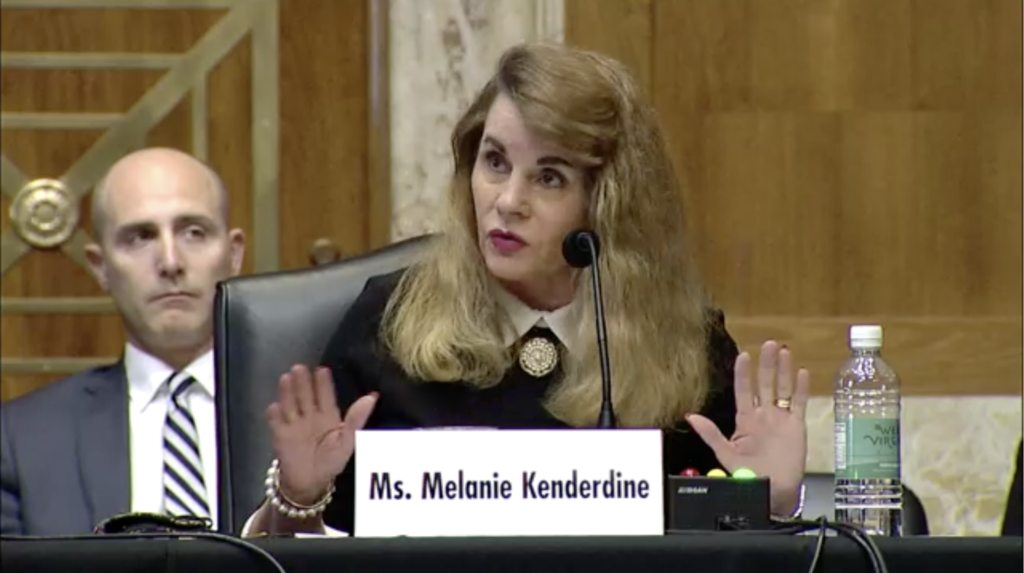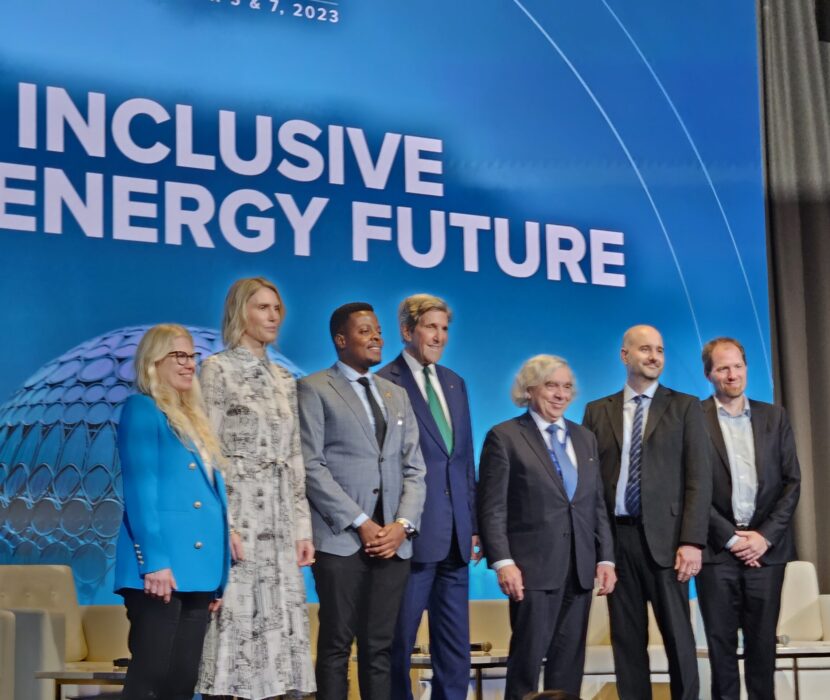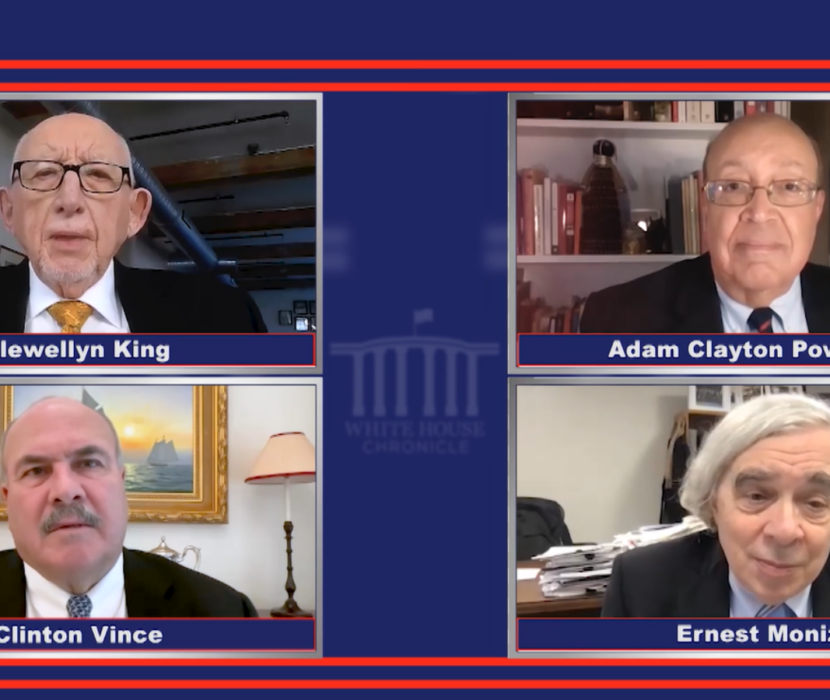
Since 2017, Energy Futures Initiative (EF) staff has testified nine times before the U.S. Congress–in both Senate and House committees. On March 10, 2022, Melanie Kenderdine testified before the Senate Committee on Energy and Natural Resources as a witness during the “Full Committee Hearing to Examine the Use of Energy as a Tool and a Weapon,” alongside Jonathan Elkind (Columbia University Center on Global Energy Policy), Michelle Michot Foss (Rice University Baker Institute for Public Policy), Colette Hirstius (Shell USA, Inc.), and Kenneth B. Medlock III (Rice University Center for Energy Studies and Bake Institute for Public Policy).
The hearing was timely amid the Russian invasion of Ukraine and the European energy crisis. The committee and witnesses discussed what is needed to reinforce domestic energy supply and security, touching on topics including oil and gas prices, critical mineral supply chain challenges, infrastructure materials, market and policy uncertainty, and the environmental impact of the American fossil fuel industry.
The [Ukraine] crisis and the world’s response underscore the need for a thoughtful, informed, and sequenced strategy for the transition from fossil fuels to a deeply decarbonized future.
Melanie Kenderdine, EFI Principal
Kenderdine’s testimony focused on two aspects of energy supply and security: liquid natural gas (LNG) and critical mineral supply chains. She urged the LNG industry to “dramatically reduce its methane emissions,” given “we have the technology.” She also commented that “we need to be very careful” of China’s control of global critical mineral supply. The U.S. Geological Survey has identified 50 metals and minerals as critical; however, the United States must import 50% to meet demand for 27 of them and is completely dependent on imports for 13 of them.
In the spirit of the Labor Energy Partnership (EFI’s collaboration with the AFL-CIO), Kenderdine highlighted that auto repair is a central industry for many parts of rural America but that electric vehicles could decrease commercial activity. She says that creating recycling centers for batteries and other key minerals could create an industry to fill in the gap.
She noted that the clean energy technology we deploy defines which metals and minerals are critical. “The lifespan of those technologies is a measure of our energy security,” Kenderdine said.
Most of the questioning in the hearing was directed towards Colette Hirstius of Shell USA, Inc. on increasing fossil fuel production in the United States to meet demand, including questions on expediting permitting for new drill sites, inappropriate investment by the industry, and the environmental issues with expansion. Given disagreement on whether new drill sites should be permitted, there were also questions on how renewable energy sources could meet demand. A number of witnesses, including Kenderdine, Elkind, and Foss focused on issues of supply chains for natural gas and critical minerals that would fuel the clean energy transition.
Oil and gas prices were a recurring concern among senators, many of whom blamed the Biden Administration for the increased expense. However, each witness and a number of other senators explained that the soaring prices have been building for several years and are largely due to decisions by investors and the oil and gas companies themselves.
–Angie Kaufman
(Share this post with others.)




